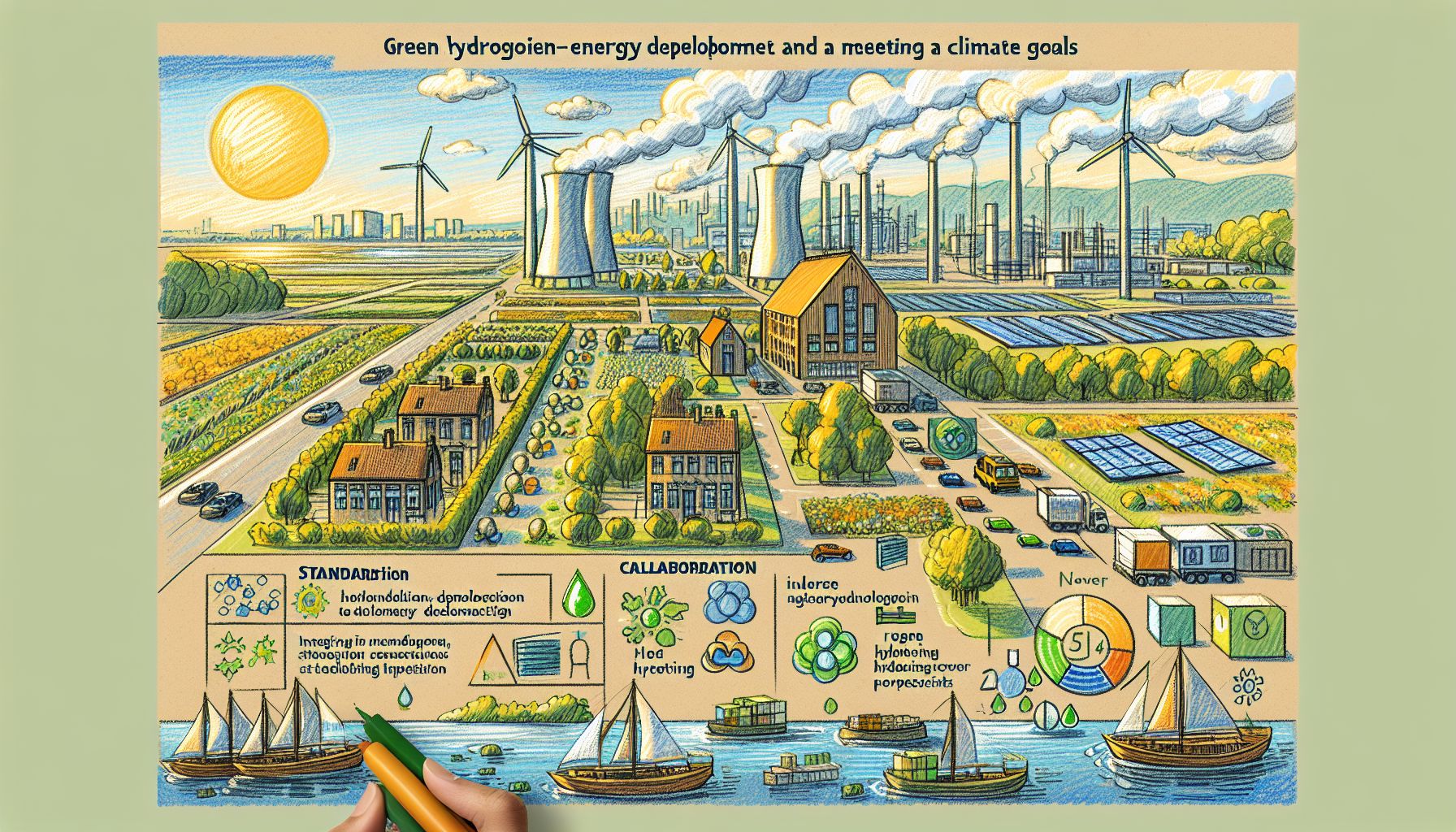Dutch Standardization Crucial for Green Hydrogen Scale-Up

Delft, Tuesday, 29 October 2024.
The Netherlands’ NEN emphasizes the importance of standardization and collaboration for large-scale green hydrogen deployment in the energy transition. This push comes as discussions intensify on integrating green hydrogen into industrial processes, highlighting its role in reducing carbon footprints and meeting climate goals.
The Role of Standardization
In a recent video podcast, Joyce Emid, a consultant at NEN’s Energy and Electro department and a committee member at Actemium Netherlands, underscored the pivotal role of normalization in the deployment of green hydrogen. Emid elaborated on how NEN’s standards are developed to be globally consistent and practical, which is crucial for the energy transition. The podcast, organized by Actemium, focused on the need for collaboration among various stakeholders to ensure a reliable and safe energy infrastructure[1].
Challenges and Market Developments
The discussion also addressed significant challenges such as grid congestion and the necessity for continuous industrial production processes. Despite these hurdles, the belief in the potential of green hydrogen remains robust. The podcast concluded with an optimistic outlook on the future, where green hydrogen is expected to play a vital role in energy transition and combating climate change[1].
Global Perspectives on Green Hydrogen
The importance of standardization and collaboration in the context of green hydrogen is echoed globally. For instance, DNV’s ‘Energy Transition Outlook 2024’ emphasizes similar themes, indicating that standardization is crucial for the development of green hydrogen technologies. This report also highlights the role of digital technology in managing the complexities of the energy transition and the critical role of floating offshore wind in expanding green energy capabilities[2].
Looking Ahead
As the global demand for green hydrogen grows, platforms like the Fuels and Chemicals Conference, scheduled for April 2025 in Cologne, provide an essential venue for discussing innovations in carbon capture and green hydrogen production. The conference is expected to draw over 250 international experts, emphasizing the urgency for investment in Carbon Capture and Utilisation (CCU) technologies and the strategic importance of CO2 utilization in achieving net-zero goals[3].

